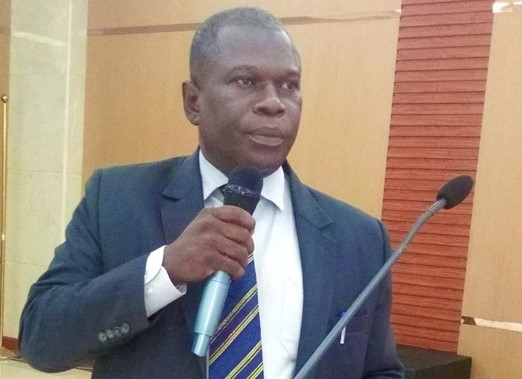
Local and international partners have intensified their push for the establishment of a war and economic crimes court in Liberia, as a means of ending the culture of impunity for hardened murderers and unrepentant criminals bent on derailing the peace and development efforts of the country.
The re-energized effort is being led by the Global Justice and Research Project (GJRP), University of Nottingham’s Human Rights Law Centre, Civitas Maxima, and the Independent Legal Representative of Victims of War Crimes and Crimes against Humanity.
On March 19—20, 2021, a two-day interactive forum was held at the Bella Cassa, Monrovia, to design a roadmap that will lead to the successful implementation of the recommendations of the erstwhile Truth and Reconciliation Commission (TRC), with the priority of establishing a war and economic crimes court in Liberia.
Evidenced that the groups had done all the necessary underground work for the achievement of their goal, the forum firstly pointed out the barriers that have been the obstacle to the establishment of the court. According to them, the barriers were identified through public consultation between February and March 2021.
Among the barriers the war crimes court advocates highlighted as most significant are the lack of political will, failure to adopt the 2019 resolution for the establishment of a war crimes court, lack of coordinated and consistent pressure on the government, anti-war crimes court propaganda, lack of public knowledge and clarity, and lack of funding. However, the advocates seemed more prepared to overcome the challenges, as they divided the forum into sections to come up with “draft pledges of commitment”.
“Since the Truth and Reconciliation Commission released its final report and recommendations in 2009, there has been a lack of political will to implement them. The current administration has yet to act in spite of positive steps such as the 2019 letter from President Weah to the National Legislature asking for guidance on implementation and support for accountability demonstrated at the United Nations.
“On July 18—19, 2019, Liberian stakeholders and international experts assembled for the legislative conference on accountability for past crimes in Liberia. The conference culminated in the joint committee of Liberia’s House of Representatives presenting a resolution backing the establishment of a war crimes court. The resolution was immediately endorsed by nine lawmakers, and has currently been signed by 52 representatives.
“To date, there have been many admirable and determined efforts to bring accountability and justice for conflict-related crimes. These include protests, radio shows, outreach, writing to politicians and the 2019 resolution. However, these efforts have often been spaced out and conducted by different stakeholders independently of others’ efforts. Without coordinating to maximize the impact of activities, there has not been sustained momentum and consistent pressure on the government to act.
“Those individuals who wish to avoid the establishment of a war crimes court have made a concerted effort to misinform the public and otherwise warn people away from the concept. Falsehoods include the idea that such a court will prosecute former child soldiers, and that it may plunge the country into a new civil war.
“There is a lack of clarity around what an established war crimes court might look like, who it might prosecute and who will staff it. By providing clarity on key issues, such as the court’s jurisdiction, witness protection, and what trial processes might look like, the stakeholders can contribute to allaying fears and countering misinformation. Additionally, there is a lack of clarity around other Truth and Reconciliation Commission’s recommendations.
“There is a question over how implementing post-conflict justice will be funded, including the establishment and operation of the war crimes court,” a document containing the barriers to overcome by the war crimes advocates noted.
Participants of the forum signed a final Draft Pledge of Commitment to encourage and assist the Government of Liberia (GOL) in re-prioritizing the question of accountability and justice for conflict-related crimes. “We are seeking to empower the victims to realize their rights and attain justice for past wrongdoings,” they noted.
According to them, the pledge represents a shared commitment to establish a war crimes court and break through barriers which have so far prevented justice and accountability, as every stakeholder has an important role to play.
In their pledge, both domestic and international partners, donors, international organizations and civil society organizations agreed to affirm the overall goal, objective and strategic actions of the roadmap; develop, adopt and implement organizational policies on accountability and justice; make public commitment to at least two strategic actions of the roadmap; and contribute to the collective work of the initiative, including the promotion of, and participation in, the activities of other partners where possible.
The conference was also attended by chiefs and elders from the fifteenth counties of Liberia and other government officials.






